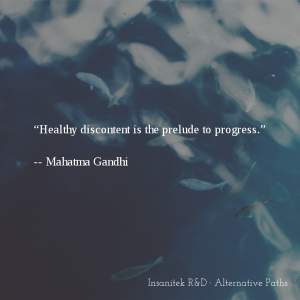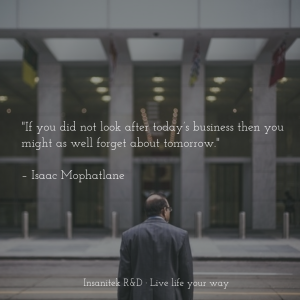 What is your ideal life?
What is your ideal life?
Some people say they would be content with making “enough money” to “live their dreams”. What does that mean to you? I’m asking you in all seriousness because this vision is what can motivate you.
My idea of a good life is a big(ish) house with an even bigger yard. I don’t want a huge, 7 bedroom place, but I want one with a big kitchen so I can entertain friends, family, and laugh a lot. I don’t need a big screen TV, but I’d LOVE a giant library — preferably one that is big enough to have a large fireplace and a few overstuffed chairs I can read in while staying toasty warm.
Everyone has a dream, and this dream is borne of healthy discontent for what they have. This isn’t a bad thing as it can breed progress, change, and elevation within your life.
What happens when you reach your ideals?
I like to think positive here: Someday you will reach your goals. You will work hard and make all your dreams come true. You will have that car, the house, the dog, and maybe even that special tea set you want. You will have those vacations to Paris, tropical islands, and be able to go hiking where ever you want to.
And what then?
Say you fulfil the promise of every internet marketer out there and make 6+ figures a year within your first two years of business (if only you buy ALL their courses). What then? Will that be enough to let you live a fulfilling life?
Complacency creates a stagnancy you can’t easily shake.
We all fall into this from time to time.
- I fell into the trap of thinking I had a decent life. I was making enough money to pay my bills while working through Insanitek’s startup phases. I wasn’t motivated to make Insanitek grow faster and made a lot of excuses to avoid it. It took me a year and a half to shake it and move forward.
- Ali, Insantiek’s cofounder, fell into complacency when he got ill. He was happy to just get good grades in classes. Eventually, he added more to his list.
- Travis, a researcher that started at Insanitek a couple of years ago fell into complacency when he felt like his time was best spent relaxing and playing video games. He still hasn’t shaken this malaise and left us officially last year.
- Every week Rachel, our graphic designer falls into a pattern of relaxing after her day job since she moved across the country so she could enjoy her new city, only to break out every weekend for a few hours and work on things for her freelance work here at Insanitek.
 Ah, the perks of being human, am I right? The thing you are aiming for is to not be like Travis. You don’t want to have a dream, just to leave it because you got comfy with a smaller life. It’s hard work changing and living for those dreams. It’s worth every single ounce of effort you put into it because you’ll be able to slowly achieve the dream of getting that sexy sports car, that big house, and those dream vacations.
Ah, the perks of being human, am I right? The thing you are aiming for is to not be like Travis. You don’t want to have a dream, just to leave it because you got comfy with a smaller life. It’s hard work changing and living for those dreams. It’s worth every single ounce of effort you put into it because you’ll be able to slowly achieve the dream of getting that sexy sports car, that big house, and those dream vacations.
So, how do you break complacency once you’ve settled in?
Every single person has a different way that kicks them out of a rut. Read that as “no single piece of advice will be guaranteed to work”. Despite of this, there are certain things you can do to shake it. First, you should understand your brain and happy chemicals (slides from Loretta G. Breuning, PhD and Meet Your Happy Chemicals book).
When you do something pleasurable, your happy chemicals are released in the brain. They make you feel good, even when your habits have negative consequences. This is because your happy chemicals, serotonin, dopamine, oxytocin, and endorphins tell you that you’ve done a good thing avoiding the stress chemical of cortisone.
This creates an endless feedback loop: do something unpleasant, cortisone is released in the brain, which makes you seek out something pleasurable. You feel miserable because of the negative consequences, so you’ll seek something positive again. Repeat cycle until you have the guts to break it.
Breuning notes that it takes 45 days to change a habit completely. It will feel uncomfortable or unpleasant until then. That’s why I recommend that people choose a task that helps them break the habit every day and repeat it. For example, I have a weakness for learning from others. I love e-courses, webinars, virtual summits, conferences, etc. To get away from this, I force myself go for a walk every day. 30 minutes away from learning in order to reflect on the lessons, think about how they can be integrated in my life and business, and daydream about how I can make those goals come true.
This 30 minutes away from your vice can bring you back to life slowly. It’s your life, and you deserve every minute you can get to support your dreams. Don’t let them drain away from you.
Your turn: What do you find is your sticking point when it comes to breaking out of a complacency rut?







